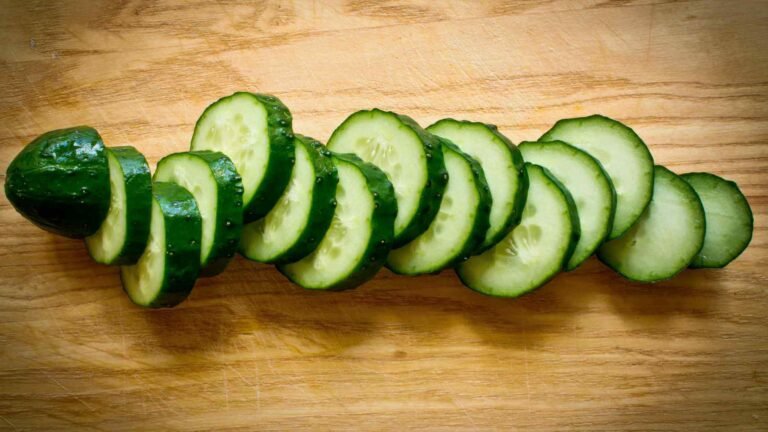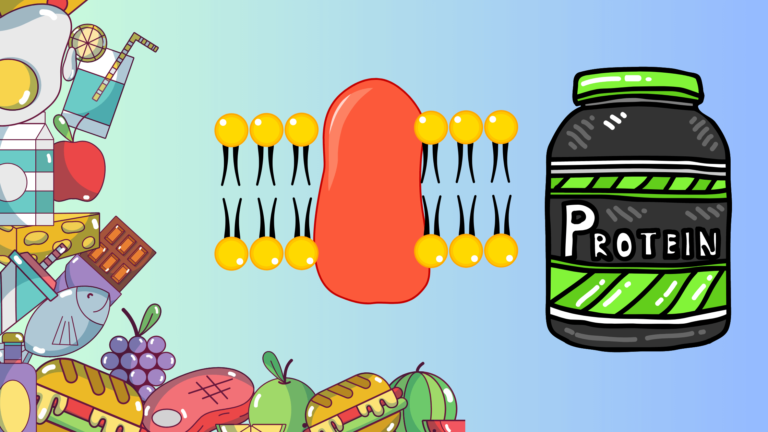The 18 Best Winter Fruits to Help Keep You Healthy
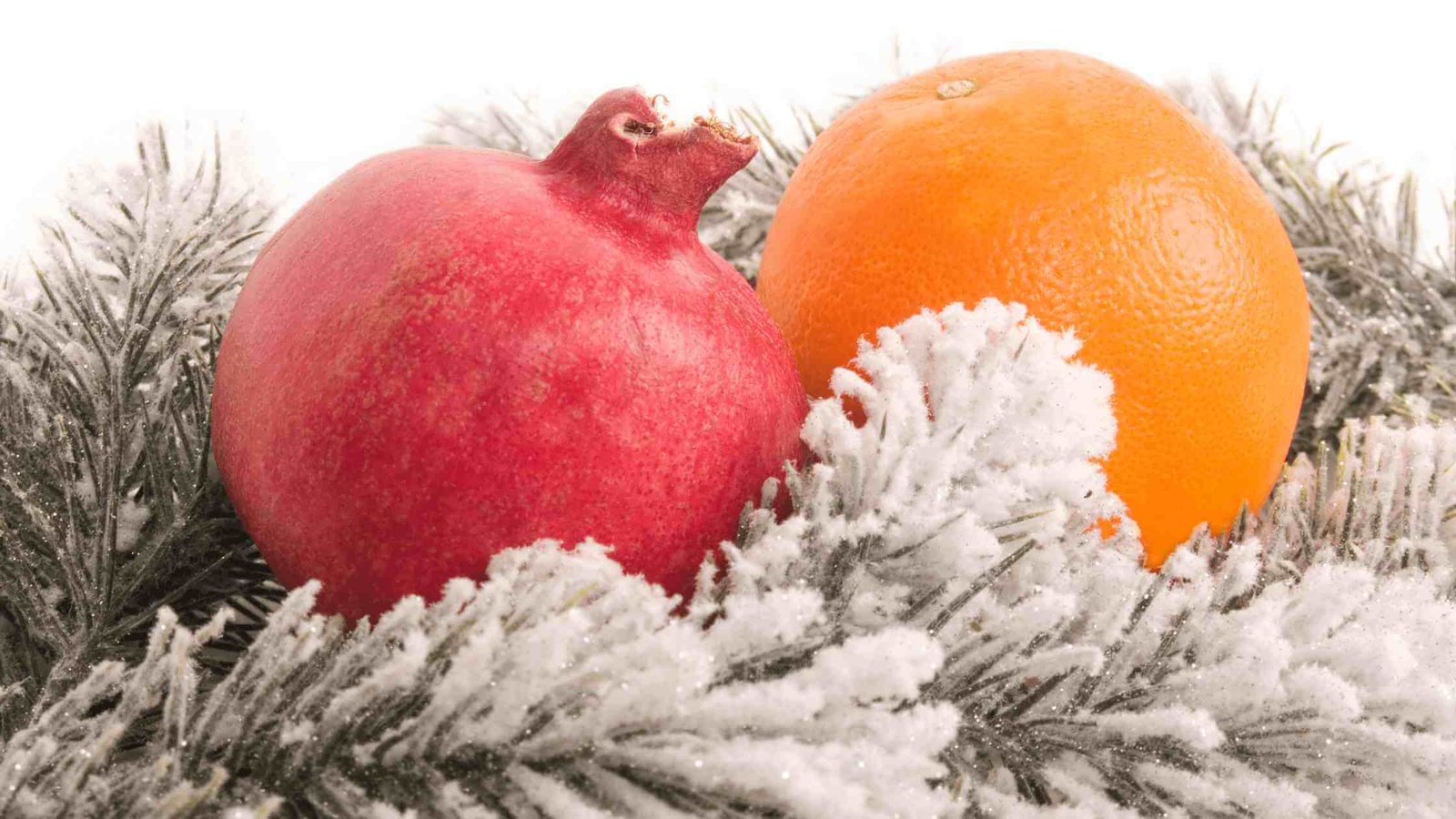
Recently, We had a hard time getting our immune system up and running, so that was a major issue. What did we not eat or drink to keep the diseases at bay, from kadha to juices and green tea? The rapid change in seasons has placed us once again at a crossroads.
The cool weather is refreshing, but we all know that it also increases the danger of seasonal illnesses (cold, cough, flu).
You may get better results if you pay attention to your food at this time; luckily, the season is also linked to a wide variety of delicious and healthy fruits, which can make exercise more manageable.
There is a plethora of ways to enjoy them, from eating them raw to putting them in smoothies to making delicious chutney.
The Best Winter Fruits to Help Keep You Healthy
Don’t allow the chilly weather to prevent you from sticking to your diet! Eat these wintertime fruits to boost your immunity and shed those excess pounds!
1. Apple.

Not surprisingly, the proverb “one apple a day keeps the doctor away” holds some validity. Apples are compared to superfoods because they contain so many nutrients that it seems unlikely that one small fruit could benefit so greatly, but it does.
There are many types available worldwide, from the gala and granny smith to McIntosh and cosmic crisp to golden delicious, so it’s understandable.
The apple may help you avoid the doctor this winter thanks to antioxidants that help prevent disease and vitamin B, which preserves red blood cell count.
Quercetin and pectin, two nutrients abundant in apples, are thought to contribute to the fruit’s numerous health advantages.
Quercetin is a flavonoid, a sort of naturally occurring plant chemical, and a pectin is a form of soluble fiber that may help reduce constipation, according to Harvard’s School of Public Health. Flavonoids have antioxidant and anti-inflammatory qualities.
Since most of the fiber and flavonoids are found in the skin of the apple, eating entire apples is preferred.
2. Pears, since they contain a lot of fiber.
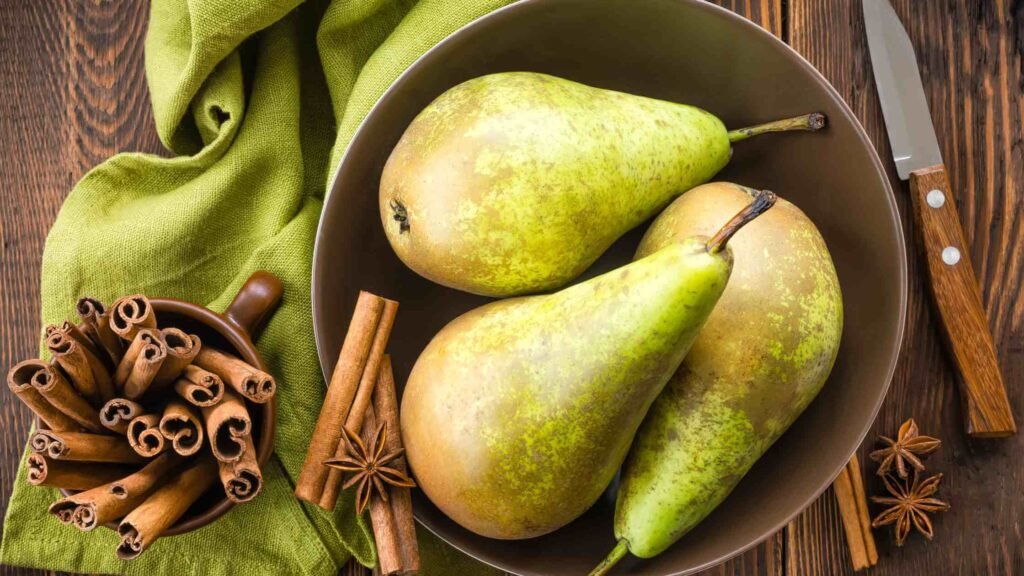
USDA data show that one pear has 5.58 g of fiber, making it a decent source of nutrients. Ruggles argues that fiber is beneficial for the immune system because it promotes the growth of beneficial bacteria.
It was explained that the more fiber you eat, the more immune cells your body will produce. Furthermore, one randomized controlled experiment indicated that fibrous foods, such as pears, can independently assist in promoting a healthy weight.
The Cleveland Clinic says that fiber’s ability to make you feel full can help you control your food intake. Ruggles recommends preparing pears in a warm dish with spices like cinnamon for a unique wintertime twist.
3. Pineapple
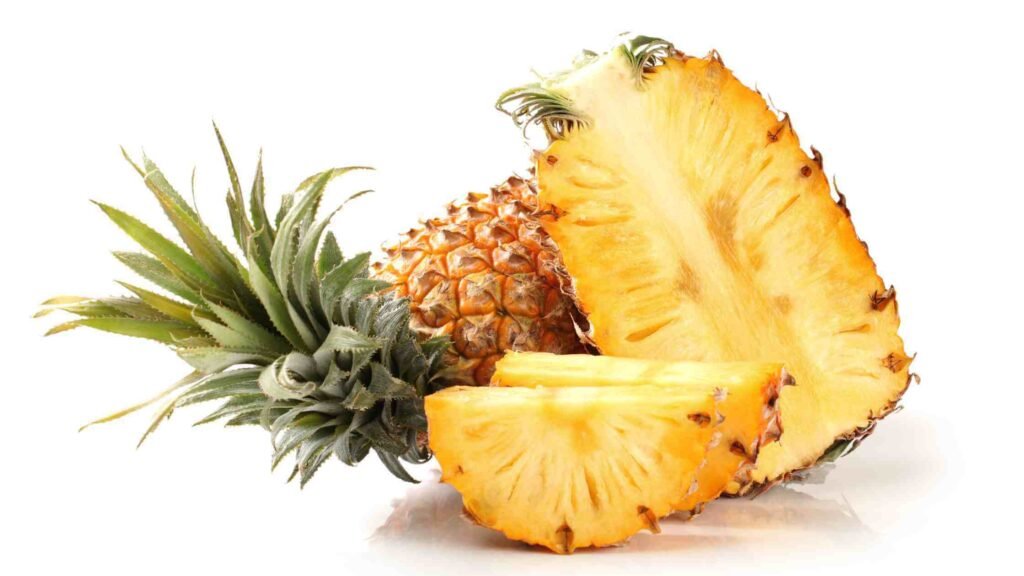
The USDA reports that 1 cup of fresh pineapple contains 78.9 milligrams (mg) of vitamin C, making it a great source of vitamin C alongside citrus fruits.
According to one review, a tropical fruit also offers benefits for the brain system and digestive systems, in addition to its anti-inflammatory and antioxidant activity, which helps it fight disease.
4. Cranberries

The traditional dish at the holiday meal is not only delicious but also healthy. The risk of getting coronary artery disease and elevated cholesterol levels can both be reduced by consuming cranberries, according to a recent analysis.
The USDA reports that one cup of whole, raw cranberries contains 14 milligrams of vitamin C. Ruggles recommends adding dried cranberries as a tasty garnish for salads.
5. persimmons
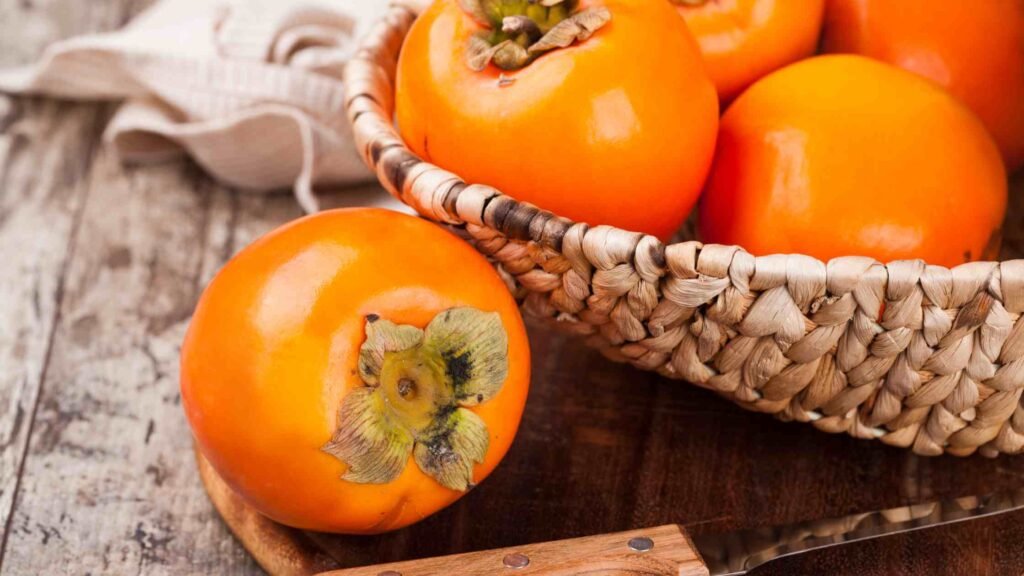
The USDA reports that one of these Asian fruits has 138 mcg of vitamin A, making it a decent source. A review suggests that vitamin A has the ability to boost immune function and protect the body against infectious diseases.
The mucus membranes of the respiratory tract and the throat are crucial for “barrier immunity,” as Ruggles puts it.
6. Oranges

The United States Department of Agriculture reports that one orange has roughly 82 milligrams (mg) of vitamin C, making it a great source of nutrients. You shouldn’t use fruit juice as a replacement for the real thing.
In order to get the most out of the fruit’s nutrients, including fiber, Ruggles recommends eating the full fruit rather than drinking fruit juice. You should eat an orange because it is a rich source of fiber (3.7 g per fruit). (If you don’t like oranges, but want the health benefits, Tufts University suggests trying clementines.)
7. Cancer-Fighting Grapefruit.
Half of a raw Florida grapefruit, according to the USDA, has 43.7 milligrams of vitamin C.
The previous study suggests that the antioxidant lycopene found in grapefruit may help lower the risk of various cancers, most notably prostate cancer.
8. Pomegranates for Stronger Bones

The United States Department of Agriculture reports that one cup of this bright red fruit has 17 milligrams of vitamin C and 7 grams of fiber. Pomegranate also has a lot of vitamin K—28.7 mcg in just one serving.
The National Institutes of Health (NIH) reports that vitamin K aids in blood clotting and helps maintain strong bones. Antioxidant and antibacterial properties are also highly valued; one research suggests they may contribute to the growth of beneficial bacteria in the digestive tract and on the skin.
9. Kiwi, Vitamin C Powerhouse
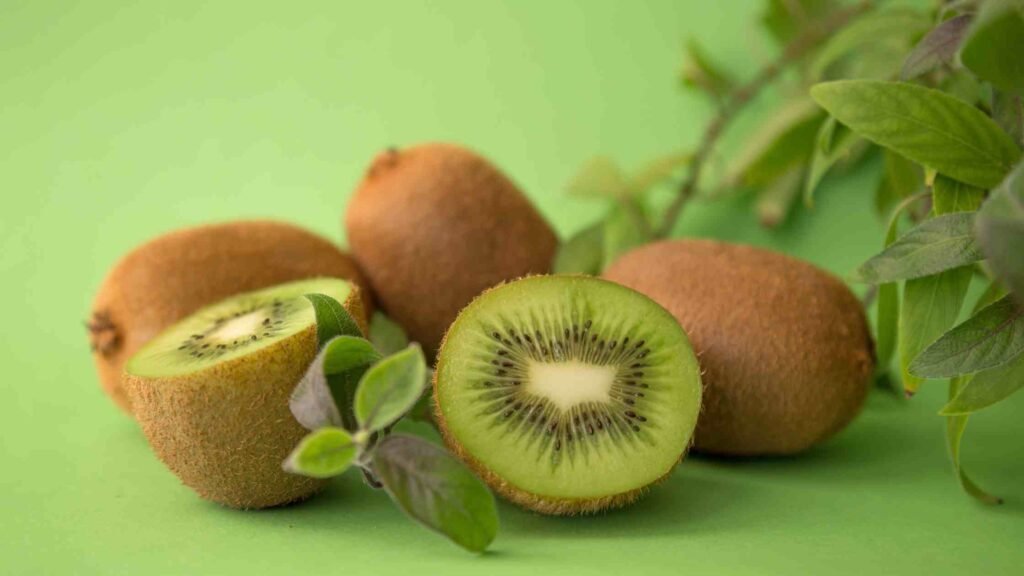
The United States Department of Agriculture reports that single kiwi fruit is loaded with 56 milligrams (mg) of vitamin C. Ruggles suggests having a kiwi with your morning meal. It’s a good way to get a dose of vitamin C and feed your immune system first thing in the morning, she says.
One kiwi fruit has 30.2 micrograms of vitamin K, making it a fantastic food for anyone who is trying to increase their intake of this essential nutrient.
As a fun fact, you can eat this fruit with the peel still attached. If you want the health benefits to be even greater: The skin significantly increases the fiber content by 50%.
10. Strawberries

Strawberries, a winter fruit, are a delicious treat that also seems to have some positive effects on your body. Strawberries’ high anti-oxidant content makes them great for the skin, and they also help the body fight off typical winter diseases.
To luxuriate in a wintertime strawberry harvest is a favorite pastime for many, and with good cause! The farms are aesthetically pleasing, and the fruit has the added benefit of protecting against many common winter illnesses.
Strawberries, one of the best winter berries, can help you appear younger (because of their high concentration of anti-aging antioxidants) and feel healthier (thanks to their high concentration of vitamin C).
11. Grapes

Grapes are a fruit that is available throughout the year; yet, due to their high content of antioxidants, they are most useful when consumed during the winter months.
They are also an excellent source of the mineral potassium, which can assist in the prevention of skin conditions. Grapes improve cognitive function and are beneficial to the health of your eyes and knees.
12. Clementine

Because it is orange in certain ways, a clementine resembles one in appearance. It is a cross between a sweet orange and a mandarin orange.
This fruit that grows on trees may be a wonderful option if you need a significant amount of vitamin C during the winter.
In warmer climates like Florida, they normally grow throughout the winter. Therefore, you can cultivate them yourself if you reside in Florida.
Take solace in the fact that they are probably carried in from regions where they naturally grow if you reside in a colder climate. You won’t go wrong purchasing this from the supermarket for that extra vitamin C boost because it has a decent shelf life.
Info
They are raised on citrus mandarin trees that are a hybrid variety and may have come from Algeria or China. The majority of clementines are grown in China, however, they are also well-known for being grown in Spain, Morocco, and California.
13. Dates
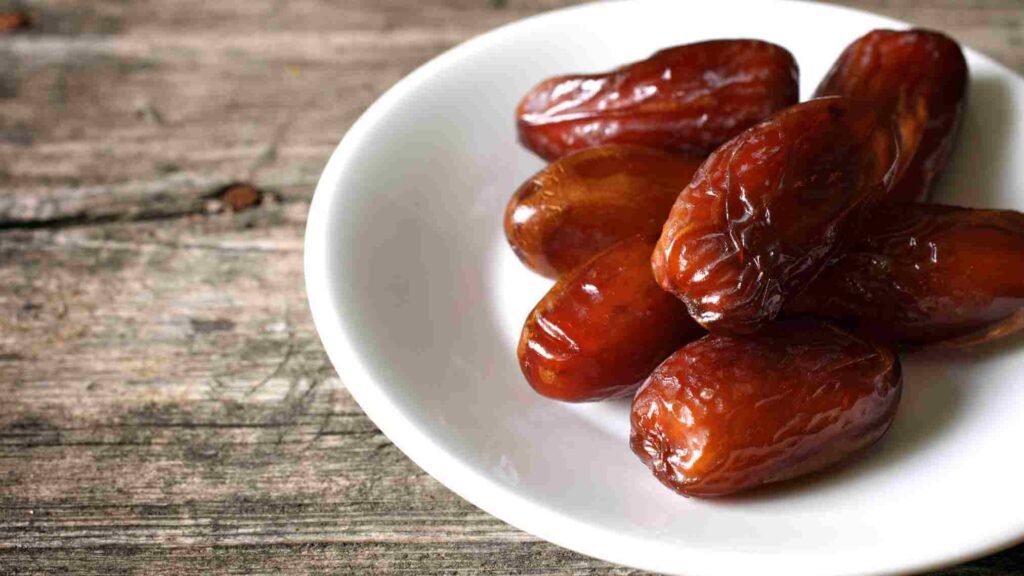
Dates, a popular winter fruit, contain a number of nutrients that are good for your health, including oil, calcium, sulfur, iron, copper, phosphorus, potassium, manganese, and magnesium.
This in-season fruit is beneficial to health since it helps prevent and treat a wide range of digestive issues. This fruit is also said to be a powerful remedy for erectile dysfunction.
As a fantastic weight gain and energy booster natural item, dates are also recommended for those who seek out a gym in an effort to bulk up. Dates combined with dairy products like yogurt or milk can speed up the weight growth process and lead to a more muscular physique without the need for any artificial additives.
14. Custard Apple

Vitamins and minerals are essential for many bodily functions, and it’s common knowledge that custard apples are a rich source of them.
It contains high amounts of iron, potassium, magnesium, and copper, in addition to vitamins A and C. In the colder months, when digestion slows down, constipation is more common than usual; the fiber in this dish can help.
Related: 19 Unheard Ways About How To Eat Healthy On A Budget
15. Star Fruit (Averrhoa carambola)

In certain parts of the world, star fruit is less well-known, but after learning a bit more about it, you might want to get to know it. The fruit is known as star fruit because, especially when sliced, it does have a star-like form.
Starfruit is also high in antioxidants, has a decent quantity of fiber, and is low in calories. Because of its sweet and sour characteristics, it is a healthful little jewel that may be savored in a variety of ways.
16. Bananas

A banana’s potassium content is very high. Both blood pressure and muscle mass are kept stable. In addition, the fruit supports the digestive system and has 0gm of fat.
It enhances the body’s antioxidant capacity and promotes heart health. Bananas contain soluble fiber, thus they give us a feeling of fullness. The potassium in the apple can keep the kidneys operating at peak efficiency.
17. Apricots
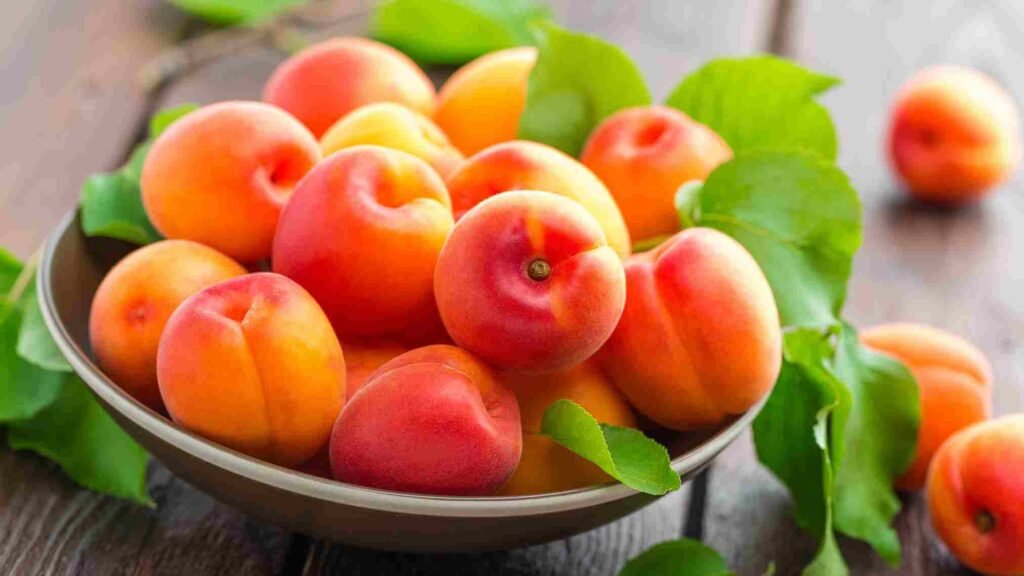
Apricots are rich in dietary fiber, potassium, and vitamins E, A, and C. Beneficial antioxidants help diabetics and heart sufferers. Studies have shown that vitamins A and E are essential for eye health.
The fruit is good for you inside and out. It may be useful in warding off the onset of aging too quickly. In addition to helping with digestion, apricots can help with gas and bloating.
18. Figs
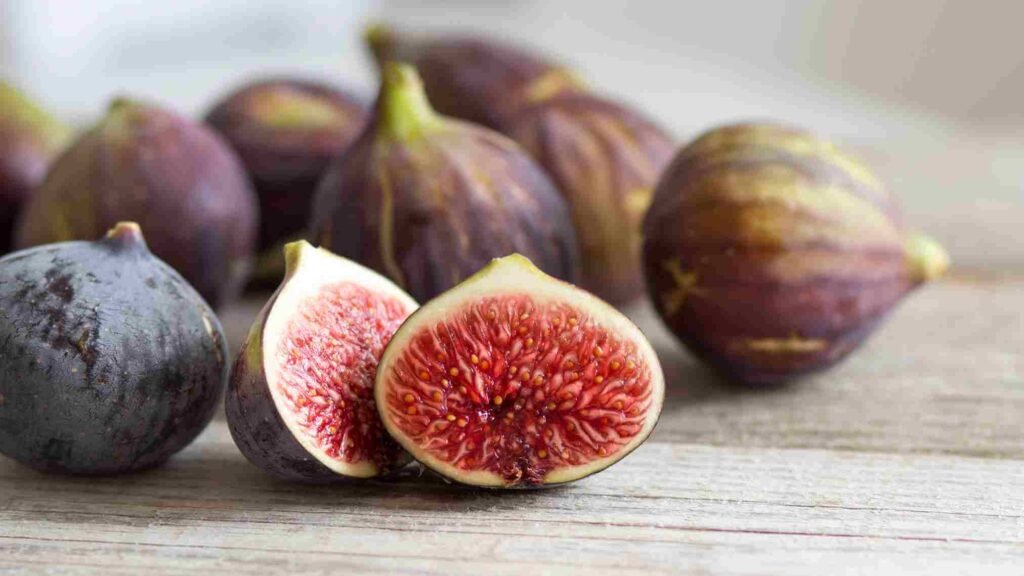
Since potassium tends to counteract the negative effects of sodium, it is an essential mineral needed by the body to maintain blood pressure.
Anjeer is an excellent source of potassium. A diet high in potassium is crucial during the winter months when hot, steaming, oily, and greasy meals that are high in sodium are frequently consumed.
Additionally, doing so might help with blood circulation and digestion issues. A diet high in potassium may help you prevent heart and kidney diseases as well.
Final Thoughts
Consuming the best winter fruits in the winter is a great way to stay hydrated and get the vitamins you need to enhance your immunity.
Winter fruits are eagerly anticipated and do not taste the same out of season. They are delicious, juicy, and packed with antioxidants. At this time of year, there are plenty of apples, pomegranates, grapefruits, guavas, and oranges.
Studies show that eating a diet high in fruits and vegetables can help prevent chronic diseases including heart disease and cancer. Carotenoids, flavonoids, and Vitamin C are examples of micronutrients that have been demonstrated to enhance immunological function.




